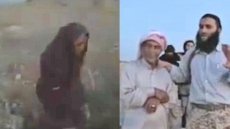UN Secretary General Ban Ki-Moon has appointed Abhijit Guha, a retired Indian Army Lieutenant General, to a high-level panel to assess UN peace operations.
Announcing the formation of the 14-member panel Friday, Ban said it would make a comprehensive assessment of UN peace operations and the needs of the future and its recommendations would be sent to next year's UN General Assembly (UNGA) session. Its mandate, he said, will include the changing nature of conflict, evolving mandates and capabilities for peacekeeping operations and performance.
Jose Ramos-Horta, a Nobel Peace Prize winner and former president of Timor-Leste, will head the panel.
Guha, who belonged to the Artillery Regiment and was awarded the Ati Vishisht Seva Medal, currently serves on a UN Peacekeeping Department committee of experts on technology to which he was appointed in June. Earlier, he was the interim director of the UN Office for Peacekeeping Strategic Partnerships.
India, which is the single largest contributor of troops to the UN having sent a total of 170,000 to 43 of the 69 peacekeeping operations, has been critical of how the system is run.
Earlier this month, Ambassador Asoke Kumar Mukerji complained to the Security Council that despite the stipulation by the UN charter, countries that contribute troops but are not members of the council have not been invited to participate in its decisions on deploying their armed forces.
India currently has a total of 8,108 personnel serving under the blue flag of the UN, about half of them in the stabilisation mission in the Democratic Republic of Congo.
On Wednesday at a meeting of a UNGA committee, Abhishek Singh, a first secretary, in India's UN Mission, raised concerns over the Congo mission, which is known by the acronym MONUSCO. The Security Council, he said, had a tendency “to mix the traditional original mandate given to the UN Peacekeeping Operations subsequently with a new interventionist mandate for a small portion of the troops in the same peacekeeping operation” and this was experienced in the MONUSCO.
“It is not only the formulation of the mandates but also the change of the mandates mid-stream which is a source of concern for us,” he said.




